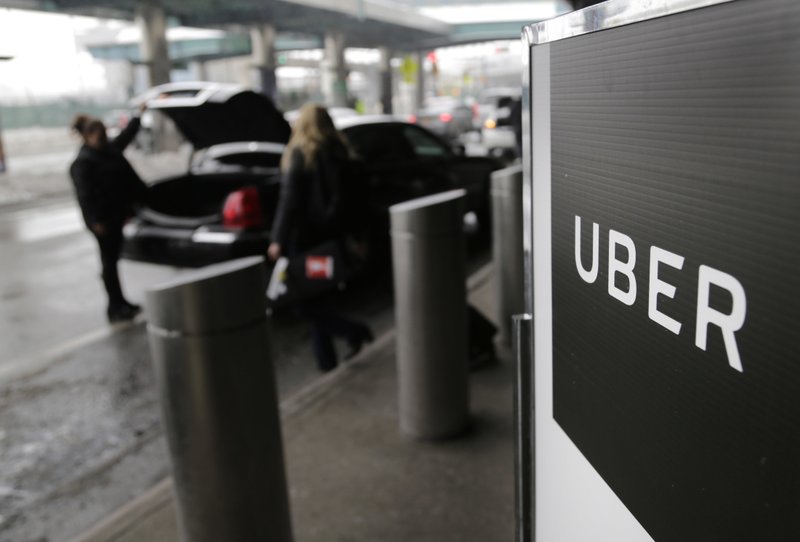SAN FRANCISCO -- Uber admitted Tuesday that it covered up a year-old hacking attack that stole personal information about more than 57 million of the ride-hailing service's customers and drivers.
So far, there's no evidence that the data taken has been misused, according to a Tuesday blog post by Uber's recently hired chief executive officer, Dara Khosrowshahi. Part of the reason nothing malicious has happened is because Uber acknowledges paying the hackers $100,000 to destroy the stolen information.
The heist took the names, email addresses and mobile phone numbers of 57 million riders around the world. The thieves also nabbed the driver's license numbers of 600,000 Uber drivers in the U.S.
The revelation marks the latest stain on Uber's reputation.
The San Francisco company ousted Travis Kalanick as CEO in June after an internal investigation concluded he had built a culture that allowed female workers to be sexually harassed and encouraged employees to push legal limits.
It's also the latest major breach involving a prominent company that didn't notify the people who could be potentially harmed for months or even years after the break-in occurred.
Yahoo didn't make its first disclosure about hacks that hit 3 billion user accounts during 2013 and 2014 until September 2016. Credit reporting service Equifax waited several months before revealing this September that hackers had carted off the Social Security numbers of 145 million Americans.
Khosrowshahi in his blog post criticized Uber's handling of the data theft.
"While I can't erase the past, I can commit on behalf of every Uber employee that we will learn from our mistakes," Khosrowshahi wrote. "We are changing the way we do business, putting integrity at the core of every decision we make and working hard to earn the trust of our customers."
That pledge shouldn't excuse Uber's previous regime for its egregious behavior, said Sam Curry, chief security officer for the computer security firm Cybereason.
"The truly scary thing here is that Uber paid a bribe, essentially a ransom to make this breach go away, and they acted as if they were above the law," Curry said. "Those people responsible for the integrity and confidentiality of the data in fact covered it up."
Uber waited until Tuesday to begin notifying the drivers with compromised driver's licenses, which can be particularly useful for perpetrating identify theft. For that reason, Uber will now pay for free credit-report monitoring and identity theft protection services for the affected drivers.
Kalanick, who still sits on Uber's board of directors, declined to comment on the data breach that took place in October 2016. Uber says the response to the hack was handled by its chief security officer, Joe Sullivan, a former federal prosecutor whom Kalanick lured away from Facebook in 2015.
As part of his effort to set things right, Khosrowshahi extracted Sullivan's resignation from Uber and also jettisoned Craig Clark, a lawyer who reported to Sullivan.
Uber remained silent about the breach while it was negotiating with the Federal Trade Commission about its handling of its riders' information.
Earlier in 2016, the company reached a settlement with the New York attorney general requiring it to take steps to be more vigilant about protecting the information that its app stores about its riders. As part of that settlement, Uber also paid a $20,000 fine for waiting five months to notify about another data breach that it discovered in September 2014.
A Section on 11/22/2017
